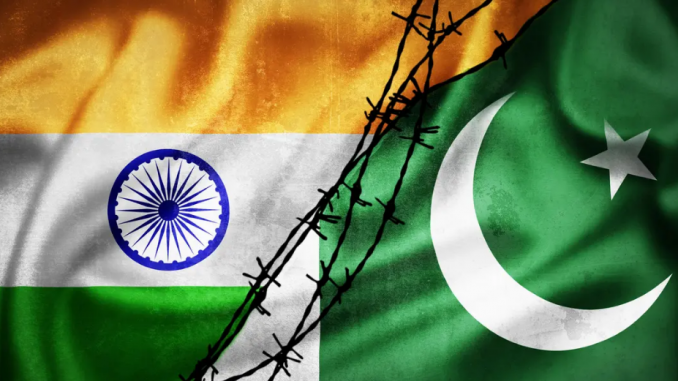
The ceasefire comes after weeks of attacks and counterattacks between the two regional rivals
| Published May 10, 2025
After days of strikes and counter-strikes, India and Pakistan have agreed to a “full and immediate” ceasefire, US President Donald Trump has announced.
India and Pakistan agreed to a full and immediate ceasefire following a significant escalation in hostilities. The agreement was announced by former U.S. President Donald Trump, who stated that the ceasefire resulted from overnight negotiations mediated by the United States. Both nations confirmed the ceasefire, with Pakistan’s Foreign Minister Ishaq Dar emphasizing Pakistan’s commitment to regional peace without compromising sovereignty. India’s Foreign Minister Vikram Misri noted that top military officials from both countries had communicated earlier in the day and mutually decided to cease all military operations by 17:00 hours.
The conflict intensified after an April 22 militant attack in Indian-controlled Kashmir, which India attributed to Pakistan-based groups. Subsequent military actions included missile strikes and artillery exchanges, resulting in civilian casualties and infrastructure damage on both sides.
Pros and Cons of the India-Pakistan Ceasefire Mediated by Trump
Pros:
-
Immediate Halt to Violence: The ceasefire stops ongoing cross-border attacks, reducing civilian and military casualties on both sides.
-
Diplomatic Engagement: The U.S.-mediated agreement opens the door for future peace talks between India and Pakistan.
-
Regional Stability: De-escalation reduces the risk of a larger conflict between two nuclear-armed nations.
-
Humanitarian Relief: Civilians in the conflict zones can receive much-needed aid without the threat of attacks.
Cons:
-
Temporary Solution: A ceasefire without a long-term peace agreement may only pause the conflict rather than resolve underlying issues.
-
Lack of Accountability: The agreement does not address the root causes of the conflict, such as militancy in Kashmir.
-
Risk of Violations: Both sides may accuse each other of ceasefire breaches, leading to a rapid escalation of tensions.
-
External Mediation Concerns: Some critics may view U.S. involvement as external interference in a regional dispute.
Conclusion
The India-Pakistan ceasefire brokered by former U.S. President Donald Trump provides a crucial pause in hostilities, offering relief to civilians and a chance for diplomatic engagement. However, the agreement is only a temporary measure, leaving the underlying issues of the conflict unresolved. For lasting peace, both nations must engage in direct dialogue, address core disputes, and build mutual trust, rather than relying solely on external mediation.
SOURCES: THE TIMES OF ISRAEL – Trump announces India-Pakistan ceasefire, ending cross-border attacks
TIME – Trump Says India and Pakistan Have Agreed to a ‘Full and Immediate’ Cease-Fire
AL JAZEERA – India, Pakistan agree to immediate ceasefire
DW – India, Pakistan agree to ceasefire, Trump announces
FINANCIAL TIMES – India and Pakistan announce ceasefire





Be the first to comment